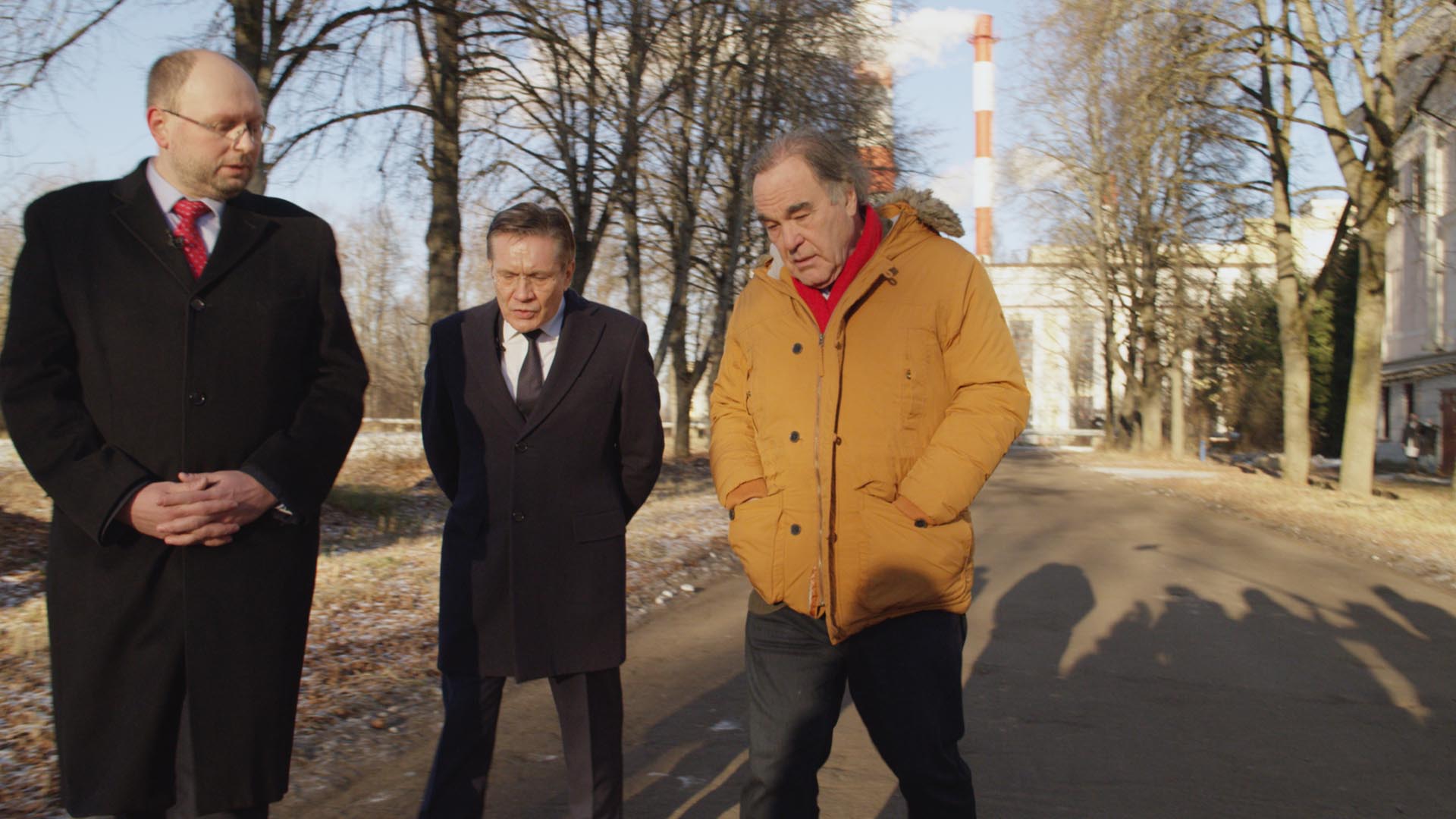
Hollywood director Oliver Stone believes nuclear power is safe. Period. Full stop. And the war in Ukraine hasn’t changed his thinking. At a time when most scientists agree we need to drastically cut our fossil fuel use to avoid permanently damaging our ecosystems, he is all in. We need nuclear, Stone says. Nuclear Now.
Nuclear Now is the name of his latest documentary. In it, he makes the case that the deadliest nuclear disaster – at the Chernobyl power plant in 1986 in Ukraine when it was part of the Soviet Union – pales in comparison to the harms done by fossil fuels to human health and the environment on a daily basis. He argues, based on research first published in the book A Bright Future, that nuclear power is crucial to satisfying modern energy demands while reducing carbon emissions.
“Russia had the biggest accident,” Stone said recently, referring to Chernobyl in an online briefing with the US Foreign Press Association. “America didn’t really have accidents. They have hysteria. We feel that hysteria led to the closing-down of the industry.”
Yes, there was a partial meltdown of the reactor at Three Mile Island in Pennsylvania that raised concerns in 1979, but his film blames Hollywood and the fossil fuel industry for fanning overblown fears of nuclear power. Movies like Silkwood and the China Syndrome raised the spectre of a doomsday scenario while Dr Strangelove or: How I Learned to Stop Worrying and Love the Bomb highlighted the risks posed by unstable leaders with nuclear weapons. The Rockefeller Foundation, supported by oil money, promoted studies warning of the dangers of radioactivity, neglecting to mention that it occurs naturally in our environment, Stone’s film contends.

Countries that include the United States, Germany and Japan have been backing away from nuclear power ever since. France and Sweden, on the other hand, have invested in nuclear power – and Russia, Stone argues, has become an industry leader, exporting its power and its technology.
Stone lamented that the war in Ukraine and rising tensions between the US and Russia could further hinder the advancement of nuclear power and the fight against climate change. The same week he addressed the association of foreign correspondents in the US, the head of the International Atomic Energy Agency (IAEA) appeared before the United Nations Security Council, warning of risks the war poses to the Zaporizhzhia Nuclear Power Plant in Enerhodar, Ukraine.
The largest nuclear power plant in Europe was seized by Russia shortly after it invaded the country. Ukrainian staff continue to run the facility in what has been described as a tense situation. Amid signs that a much anticipated Ukrainian offensive is about to begin, IAEA chief Rafael Grossi described an increasingly dangerous and unpredictable situation at the plant. He called on both sides to agree to safety protocols – not shooting at or firing from the site, not storing weapons or troops there – to prevent a radiation leak at the facility.
The plant’s six reactors have been in cold shutdown since September, but there are still tens of thousands of kilogrammes of radioactive material at the site, which relies on an external power source to keep them from overheating although there are onsite generators for use in emergencies.
Stone dismissed the concerns as overhyped, noting that the 2011 breach of Japan’s Fukushima nuclear power plant did not kill anyone, but the earthquake and tsunami that caused it resulted in 18,000 deaths. Isuru Seneviratne, executive director of Nuclear New York a nuclear advocacy group, said chemical plants pose even greater risks to civilians.
“If Putin wanted to kill a large number of Ukrainians by attacking an industrial site, there are many to choose from,” Seneviratne pointed out in the briefing. “In fact, 14,000 people have already died in the Ukraine war. America’s nuclear industry rarely ever kills anybody, war most always does.”
Stone acknowledged the Soviet Union initially lied about the Chernobyl accident, which killed 50 people and released 400 times more radiation than the atomic bomb dropped on Hiroshima. But he criticized Germany’s call for the European Union to sanction Russian nuclear power as “stupid” and counterproductive, given the climate emergency, as well as Germany’s decision to shutter all of its nuclear plants.
“Their economy is in the s***,” Stone said. “It’s dropped. The economy has fallen off completely, and it will fall further.”
If anything, Stone believes the West should be looking to partner with Russia and China on nuclear power as a way to remove climate-warming carbon dioxide from the atmosphere before it is too late.
He himself has worked in Russia. He had access to Chernobyl and Russian nuclear officials for the filming of Nuclear Now. In 2017, he interviewed President Vladimir Putin about American dissident-in-exile Edward Snowden, about whom he made a thriller.

“You’ve got to hear the other side,” Stone insisted. “You can’t just jump to conclusions spawned by the Western press.”
The idea that Russia and the US – much less Ukraine – could work constructively together on anything may sound idealistic and far from today’s reality, but Nuclear Now highlights a time when US leaders advocated a similar approach. It shows US President Dwight D Eisenhower giving his 1953 Atoms for Peace speech to the United Nations, which led to the creation of the IAEA.
“It is not enough to take this weapon out of the hands of the soldiers,” Eisenhower said at the time. “It must be put into the hands of those who will know how to strip its military casing and adapt it to the arts of peace.”







